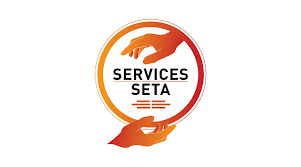Radio Broadcasting Learnerships Application 2022, How to apply for Radio Broadcasting Learnerships programme, requirements, eligibility, and application closing date 2022-2023.
Are you a student looking for Learnerships in South Africa 2022? Application is invited from suitably and qualifies applicants for the Radio Broadcasting Learnership program 2022. Learn about the process you’ll take to complete the application below.
Radio Broadcasting Learnerships Application 2022
Ready to apply to Radio Broadcasting Learnerships? Here on Southafricaportal.com, you get all information regarding the Radio Broadcasting leadership application form, how to apply online, requirements, and the application closing date 2022.
Learnerships are a great opportunity if you want to learn skills and develop a career. Learnerships for 2022 are opening now and we always have details on the latest available Learnerships for you.
When you register for a Learnership Programme you will receive training towards a full qualification but you don’t have to pay study fees. In fact, when you register for a Learnership you will be paid in the form of a stipend. This means you will be paid monthly while you are on the leadership – the amount you will be paid depends on the academic level of the Learnership.
Radio Broadcasting Learnerships Programme Details
Interested applicants can apply for the Radio Broadcasting Learnership 2022 provided they qualify and meet the program requirements.
Radio, television, internet, magazines, and newspapers all have one thing in common, they provide ways for people to communicate and learn about events and changes throughout the world. With all the technological advancements of this age. Radio broadcasting is a great way of transmitting information and a few companies offer mentorships and radio broadcasting learnerships. It is seen as an easily accessible and essential way to get information to people even in the most remote parts of the world.
Companies offering Radio Broadcasting Learnerships
Radio Broadcasting Learnerships Available
There is a variety of career paths in this industry for talented candidates. Many of the learnerships offered will be for 3-months, 6-months, 12-months or 24-months. These include a monthly allowance or stipend but selected candidates will be responsible for their own transport, accommodation, and meals.
Fields available:
- Marketing
- Radio Engineer
- Radio Programmer
- Radio Production
- Technical Operator
- Sound Operator
- Sound Engineer
- Journalist
- Editor
- Manager
- DJ
- Talk Host
- Sports Broadcaster
Radio Broadcasting Learnerships Requirements
Most companies in this industry that offer learnerships in these fields have common requirements. However, some could have others not mentioned here and candidates must ensure they know what the company requires.
Basic stipulations for radio broadcasting:
- You must be a South African citizen with a valid ID book or ID card
- Must have a Matric certificate and a diploma or degree in the field of application
- Applicants must not be employed or part of another learnership
- All applicants must be computer educated and proficient in English
Successful candidates may be asked to complete an aptitude test and attend an interview. Only those candidates who make the shortlist will be contacted, thus, all contact detail provided must be current. All documents required must be certified copies and not originals. Candidates can also submit a CV and recommendation letters with their application.
Overview of Learnership Programmes in South Africa 2022
What is a Learnership
A Learnership is a work-based learning programme. This means that classroom studies at a college or training center are combined with practical on-the-job experience. We learn much better when we can practice what we have been taught in the classroom in a workplace environment.
By physically performing tasks that are learned in the classroom at the workplace, we can see what we have learned and what we did not understand. This allows us to ask the trainer to explain that part of the lesson again until we fully understand it.
Learnerships form part of a nationally recognized qualification that is directly linked to an occupation. This means that what you learn on leadership is not just for the particular job that you can get once you have finished the leadership; it also forms part of a higher qualification that you can study further through other Learnership or short courses.
Each leadership has a specific level of qualification. An artisan like a bricklayer or a beautician, for instance, is a Level 4 Qualification. This means that if you want to become an artisan you will have to complete 4 four separate leadership (levels 1, 2, 3 & 4). There is no set time-frame in which you have to do these, as each level qualification remains in the system and will count towards the full qualification.
Who Benefits From Learnerships
In short, everybody!
The Learner:
- You get access to free learning and better job opportunities
- Can earn while you learn
- Learnerships can help you to get into the workplace and/or get a formal qualification
The Employer:
- Gets skilled, experienced workers who will need less supervision
- Gets improved productivity
- Can identify and solve gaps in skills and training
- Educates and empowers employees, creating a happy workforce
The Industry:
- Gets access to far more skilled and professional workers
- Can develop employees to world-class standards
- Becomes more competitive in the international market
How Do Learnerships Work
In the past, the education given in schools and other education facilities did not really have much in common with the working world. This meant that people entered the workplace with all of the knowledge but none of the practical experience on how to do the job.
Learnerships teach both the why and how to by creating a contract between the learner, the learning provider, and the organization or business. All learnership contracts must be registered with the Sector Education Training Authority (SETA) for that specific industry, which guarantees that the learnership programme is of a high standard.
If accepted into a learnership you will have to sign two legal contracts; a Learnership Agreement and an Employment Contract. The Learnership Agreement tells you exactly what responsibilities you, the training provider and the employer have. The Employment Contract is only for the period of the learnership. Learnerships last between 12 -24 months.
If you are unemployed, you will receive an allowance while you are on a learnership which is meant to cover costs like travel and food. If you are already employed you will only receive your normal salary.
During the learnership you will spend a certain period of time in a classroom, either at the company or organization or at other premises, and the rest of the time actually working and learning on the job at the company. It is important that you take advantage of the opportunity offered you to develop your skills, gain experience and grow your potential. from zainfo.co.za, A learnership is the perfect way to show the trainers and the organization what you know, as it could lead to a permanent job with that company or organisation, so take your learnership seriously.
You will be expected to do certain written and practical tasks while on the learnership as part of your studies. Learnerships are outcomes-based, which means that you will be assessed (tested) on what you have learned through the various stages of the learnership, not only at the end of it.
You will get an official certificate that will state the qualification, and indicate the area in which you have developed skills during the learnership if you are considered to be competent at the end of it. This qualification is nationally recognized.
Completing a learnership is not a guarantee of employment, but many learners do get employed by companies or organizations where they did their learnerships. Even if that company does not employ you, you stand a much better chance of getting employed with a learnership qualification than without one.
Who Qualifies for a Learnership
Learnerships are designed for all levels and as such is open to anyone between the ages of 16 and 60. This includes the unemployed and the employed, the able-bodied and the disabled.
How Does One Get Access to a Learnership
Decide in which line you want to study and either speak to your employer or contact your nearest Labour Centre or Provincial Office of the Department of Labour to find out whether there are any learnerships that you can apply for.
Some learnerships have certain conditions, such as only accepting learners who have a Grade 12, speak more than 1 language, or have computer skills, for instance. Other learnerships do not have any requirements.
We are sure this awesome page really helped you regarding the Learnership Programmes Application 2022, If yes: Don’t hesitate to Like Us on Facebook to share, discuss, and get the latest updates.
However, if you have any queries regarding the Radio Broadcasting Learnership 2022, Please kindly DROP A COMMENT below and we will respond to it as soon as possible.
BE SOCIAL BY SHARING THIS POST WITH OTHERS!



Goodday
Thank you sooh much for the information i will like to requist an application for on Radio Broadcasting
kind regards
Queen Zandile Dlungwane
Inform with learnership